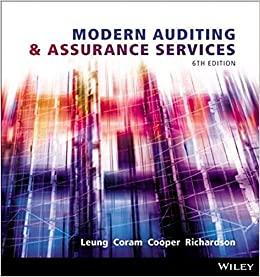Question
I still can figure the right answer to section 4 cost of the project $ cash flow for year 4 $ Follow the format shown
I still can figure the right answer to section 4
cost of the project $
cash flow for year 4 $
Follow the format shown in Exhibit 12B-1 and Exhibit 12B-2 as you complete the requirements below.
Each of the following scenarios are independent. Assume that all cash flows are after-tax cash flows.
Thomas Company is investing $120,000 in a project that will yield a uniform series of cash inflows over the next 4 years.
Video Repair has decided to invest in some new electronic equipment. The equipment will have a 3-year life and will produce a uniform series of cash savings. The NPV of the equipment is $1,750, using a discount rate of 8%. The IRR is 12%.
A new lathe costing $60,096 will produce savings of $12,000 per year.
The NPV of a project is $3,927. The project has a life of 4 years and produces the following cash flows:
| Line Item Description | Amount |
|---|---|
| Year 1 | $10,000 |
| Year 2 | $12,000 |
| Year 3 | $15,000 |
| Year 4 | ? |
The cost of the project is two times the cash flow produced in Year 4. The discount rate is 10%.
Required:
Round your answers to the nearest dollar.
1. If the internal rate of return is 14% for Thomas Company, how much cash inflow per year can be expected? fill in the blank 1 of 1$per year
2. Determine the investment and the amount of cash savings realized each year for Video Repair.
| Line Item Description | Amount |
|---|---|
| Savings each year | $fill in the blank 2 |
| Original investment | $fill in the blank 3 |
3. For Scenario c, how many years must the lathe last if an IRR of 18% is realized? fill in the blank 1 of 1years
4. For Scenario d, find the cost of the project and the cash flow for Year 4.
| Line Item Description | Amount |
|---|---|
| Cost of the project | $fill in the blank 5 |
| Cash flow for year 4 | $fill in the blank 6 |
Feedback Area
Feedback
1. Use the IRR formula to determine the annual cash flow. P = I = df CF Find the discount factor using the IRR provided and the Present Value of an Annuity table. Investment (I) / Discount factor (df) = Cash flow (CF)
2. Use the NPV and IRR formulas to determine the annual cash flow (CF) or savings each year, and the investment (I). I = df CF; NPV = df CF I
To determine CF, find the discount factor using the discount rate and the IRR provided and the Present Value of an Annuity table. NPV = (df using IRR CF) (df using discount rate CF); CF = NPV / df diff
To determine the investment, use the discount factor using the IRR and CF: Discount factor (df) x Cash flow (CF) = Investment (I)
3. Use Present Value of an Annuity table, 18%. I = df CF Find the corresponding year.
4. Use Present Value of a Single Amount table. Use the required rate of return for each year. The initial start is year 0 with a discount factor of 1.0.
P: Present value of cash inflow I: Initial cash outlay df: discount factor CF: the cash inflow to be received NPV: Net Present value
Step by Step Solution
There are 3 Steps involved in it
Step: 1

Get Instant Access to Expert-Tailored Solutions
See step-by-step solutions with expert insights and AI powered tools for academic success
Step: 2

Step: 3

Ace Your Homework with AI
Get the answers you need in no time with our AI-driven, step-by-step assistance
Get Started


